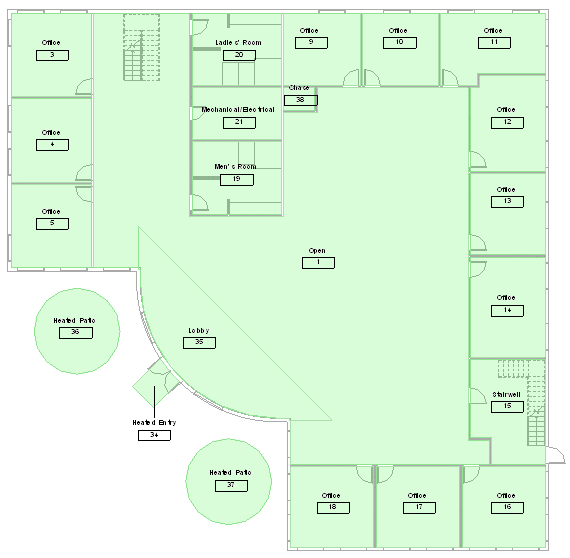Place spaces in all areas of the building model to store values used for performing heating and cooling load analysis on the building model.
- Analyze tab
 Spaces and Zones panel
Spaces and Zones panel
 (Space)
(Space)

Place spaces in all areas of the building model to store values used for performing heating and cooling load analysis on the building model.
 Spaces and Zones panel
Spaces and Zones panel
